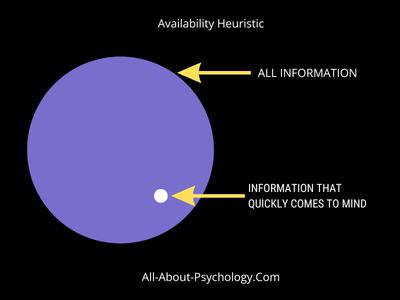Books for psychology students and curious minds
What is an Example of Availability Heuristic
by Megan Quinn
(Edinburgh)
I would be really grateful if someone could give me a simple example of the availability heuristic. Thank you.
Comments for What is an Example of Availability Heuristic
|
||
|
||

